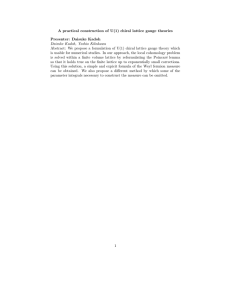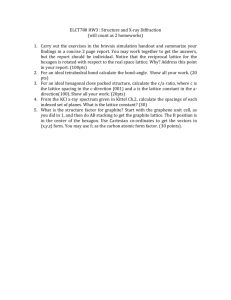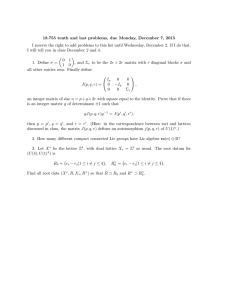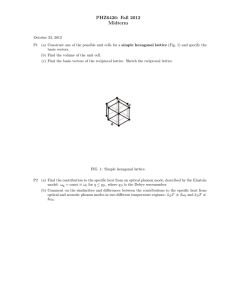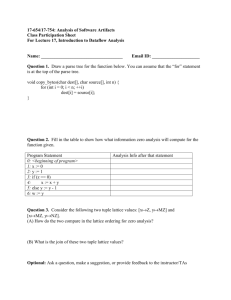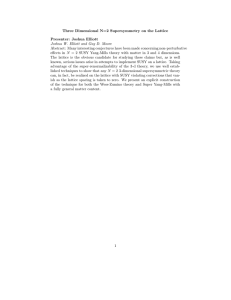16 CORRIGENDUM TO THE PAPER "LATTICE OF DISTANCES BASED ON 3D-NEIGHBOURHOOD SEQUENCES"
advertisement
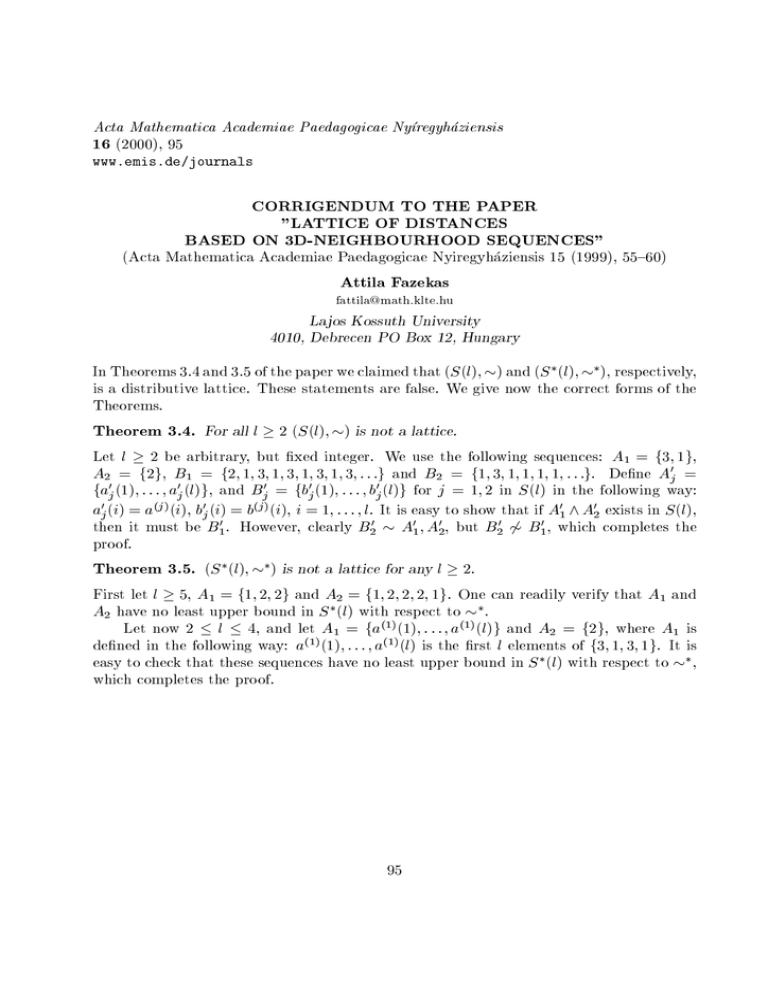
Acta Mathematica Academiae Paedagogicae Nyregyhaziensis
16 (2000), 95
www.emis.de/journals
CORRIGENDUM TO THE PAPER
"LATTICE OF DISTANCES
BASED ON 3D-NEIGHBOURHOOD SEQUENCES"
(Acta Mathematica Academiae Paedagogicae Nyiregyhaziensis 15 (1999), 55{60)
Attila Fazekas
fattila@math.klte.hu
La jos Kossuth University
4010, Debrecen PO Box 12, Hungary
In Theorems 3.4 and 3.5 of the paper we claimed that (S (l); ) and (S (l); ), respectively,
is a distributive lattice. These statements are false. We give now the correct forms of the
Theorems.
Theorem 3.4.
l 2 (S (l); )
Let l 2 be arbitrary, but xed integer. We use the following sequences: A1 = f3; 1g,
A2 = f2g, B1 = f2; 1; 3; 1; 3; 1; 3; 1; 3; : : :g and B2 = f1; 3; 1; 1; 1; 1; : : :g. Dene A0j =
fa0j (1); : : :; a0j (l)g, and Bj0 = fb0j (1); : : :; b0j (l)g for j = 1; 2 in S (l) in the following way:
a0j (i) = a(j) (i), b0j (i) = b(j) (i), i = 1; : : :; l. It is easy to show that if A01 ^ A02 exists in S (l),
then it must be B10 . However, clearly B20 A01 ; A02, but B20 6 B10 , which completes the
proof.
Theorem 3.5. (S (l); )
l2
First let l 5, A1 = f1; 2; 2g and A2 = f1; 2; 2; 2; 1g. One can readily verify that A1 and
A2 have no least upper bound in S (l) with respect to .
Let now 2 l 4, and let A1 = fa(1)(1); : : :; a(1)(l)g and A2 = f2g, where A1 is
dened in the following way: a(1) (1); : : :; a(1)(l) is the rst l elements of f3; 1; 3; 1g. It is
easy to check that these sequences have no least upper bound in S (l) with respect to ,
which completes the proof.
For all
is not a lattice.
is not a lattice for any
95
.
